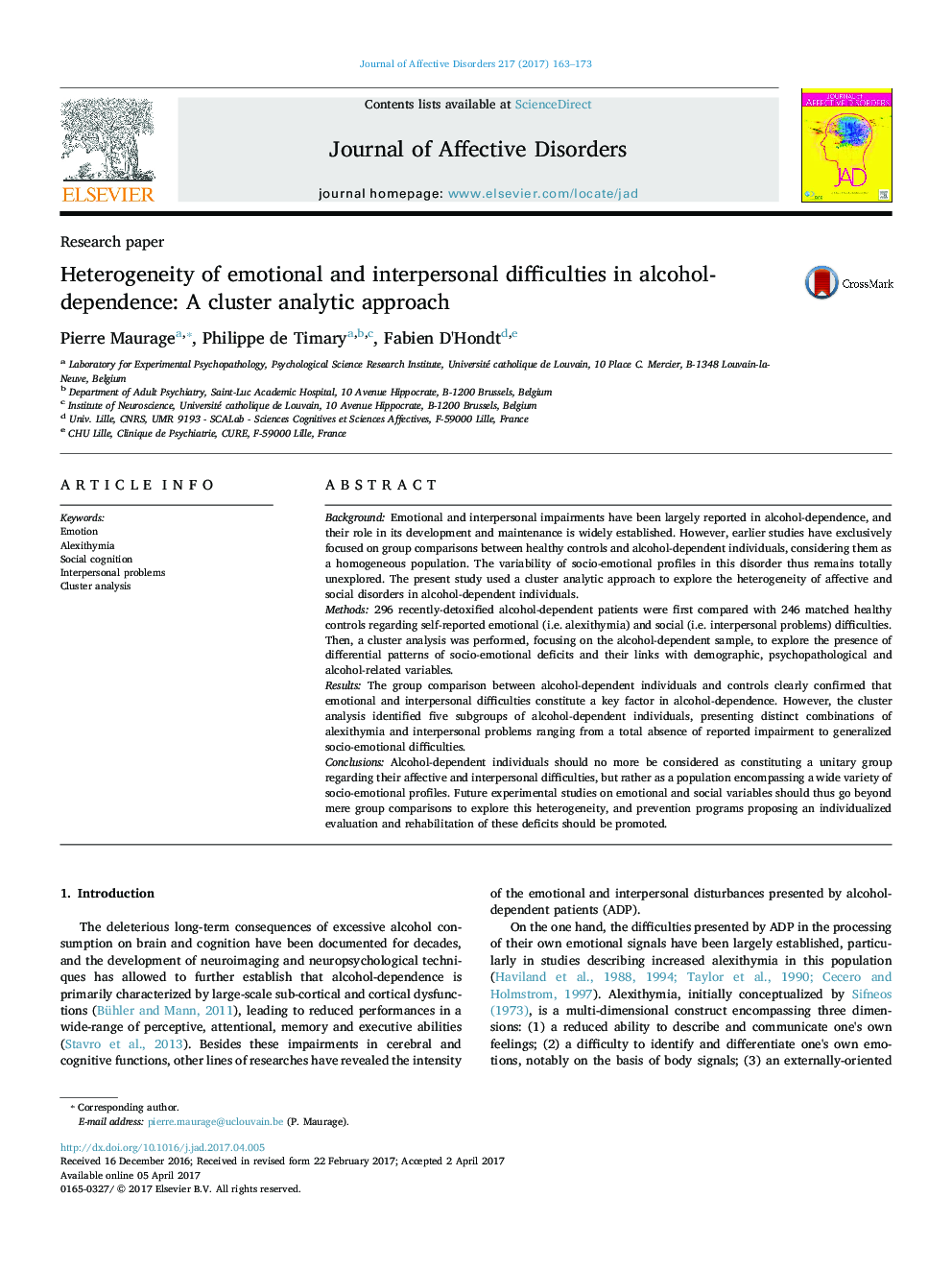| Article ID | Journal | Published Year | Pages | File Type |
|---|---|---|---|---|
| 5722197 | Journal of Affective Disorders | 2017 | 11 Pages |
â¢296 alcohol-dependent subjects and 246 controls completed socio-emotional measures.â¢Alcohol-dependence was related to increased alexithymia and interpersonal problems.â¢A cluster analysis was conducted to determine alcohol-dependent subgroups.â¢Five clusters were found, with various combinations of socio-emotional deficits.â¢This heterogeneity should be considered in experimental and clinical settings.
BackgroundEmotional and interpersonal impairments have been largely reported in alcohol-dependence, and their role in its development and maintenance is widely established. However, earlier studies have exclusively focused on group comparisons between healthy controls and alcohol-dependent individuals, considering them as a homogeneous population. The variability of socio-emotional profiles in this disorder thus remains totally unexplored. The present study used a cluster analytic approach to explore the heterogeneity of affective and social disorders in alcohol-dependent individuals.Methods296 recently-detoxified alcohol-dependent patients were first compared with 246 matched healthy controls regarding self-reported emotional (i.e. alexithymia) and social (i.e. interpersonal problems) difficulties. Then, a cluster analysis was performed, focusing on the alcohol-dependent sample, to explore the presence of differential patterns of socio-emotional deficits and their links with demographic, psychopathological and alcohol-related variables.ResultsThe group comparison between alcohol-dependent individuals and controls clearly confirmed that emotional and interpersonal difficulties constitute a key factor in alcohol-dependence. However, the cluster analysis identified five subgroups of alcohol-dependent individuals, presenting distinct combinations of alexithymia and interpersonal problems ranging from a total absence of reported impairment to generalized socio-emotional difficulties.ConclusionsAlcohol-dependent individuals should no more be considered as constituting a unitary group regarding their affective and interpersonal difficulties, but rather as a population encompassing a wide variety of socio-emotional profiles. Future experimental studies on emotional and social variables should thus go beyond mere group comparisons to explore this heterogeneity, and prevention programs proposing an individualized evaluation and rehabilitation of these deficits should be promoted.
